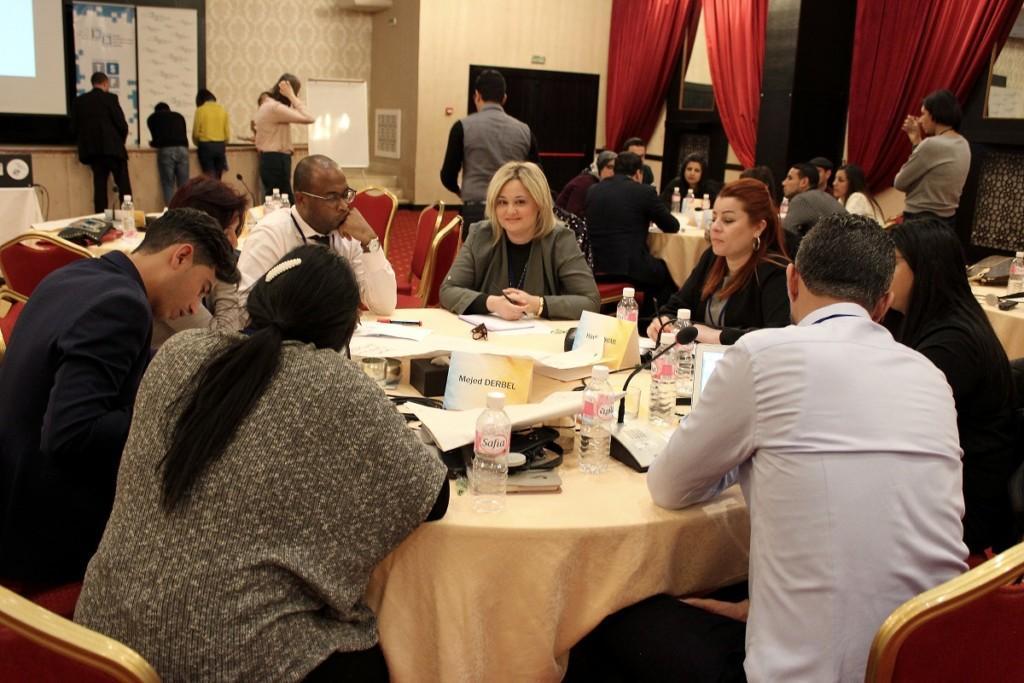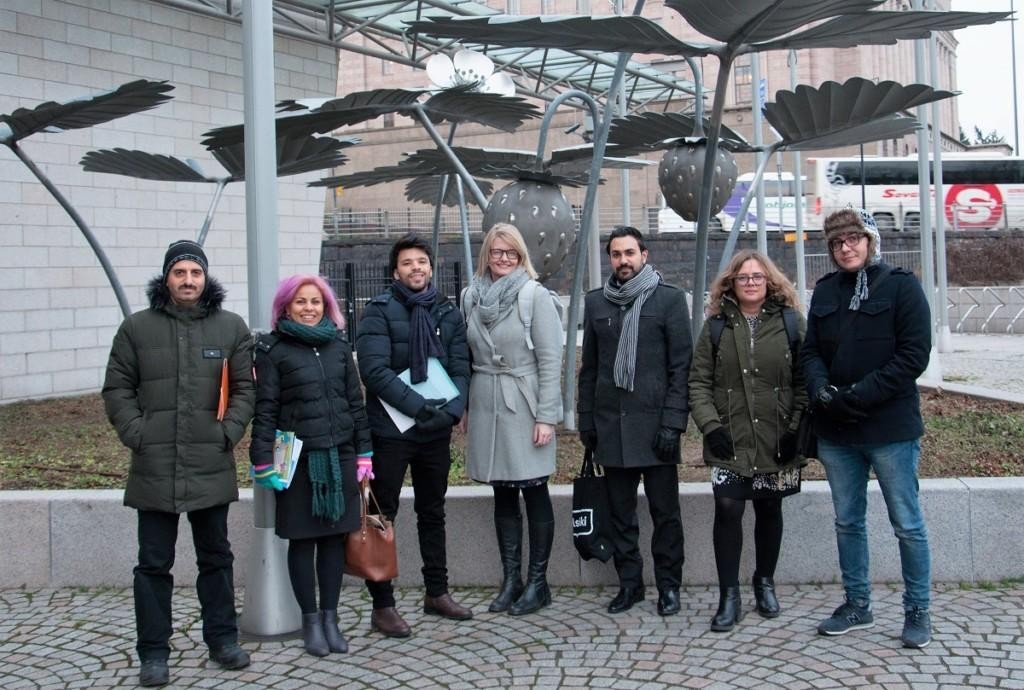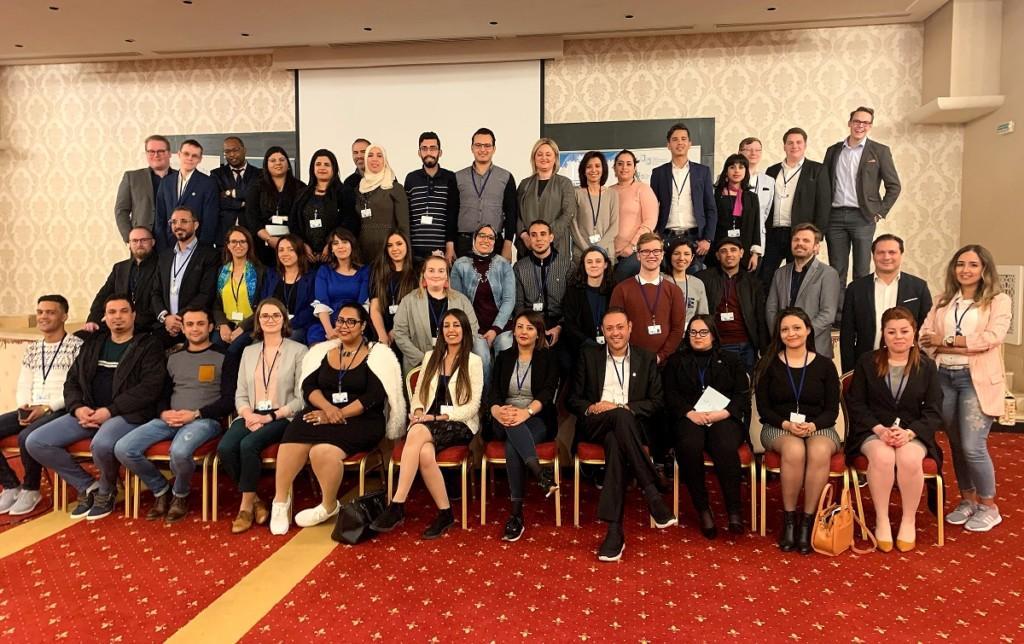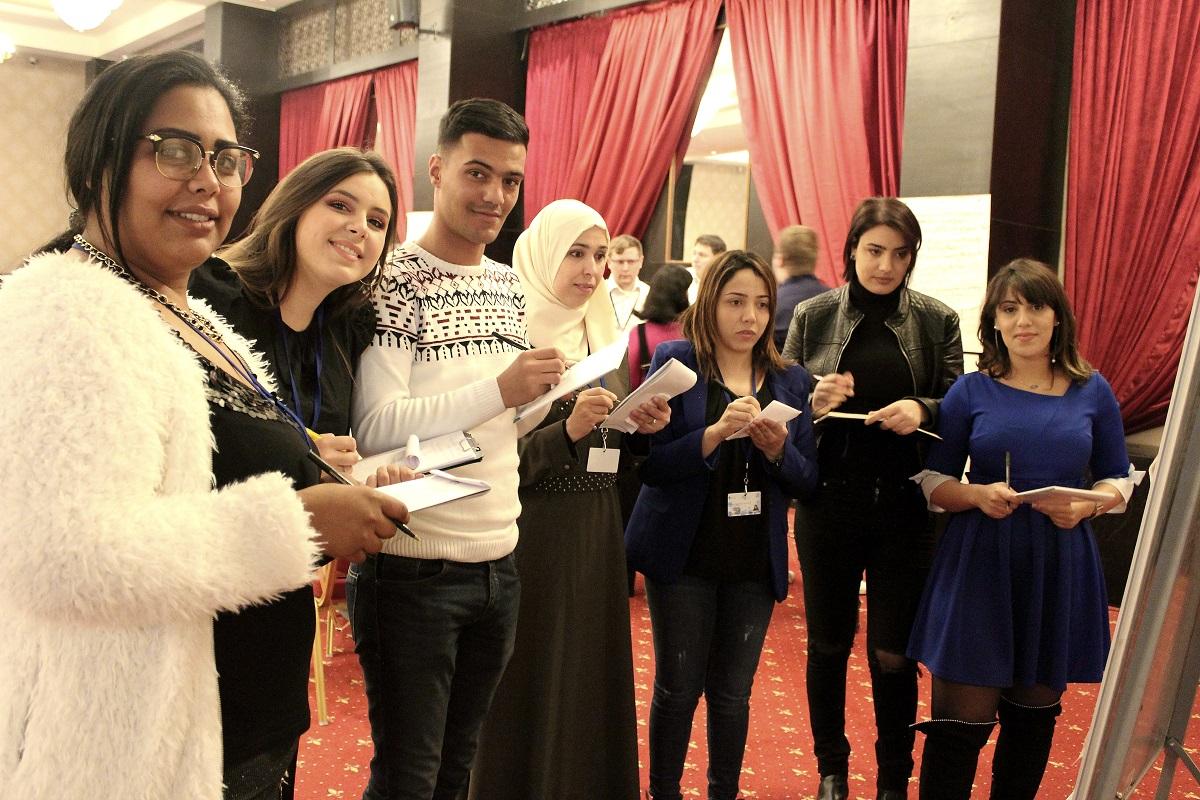The Tunisian School of Politics (TSoP) has strengthened the skills of young politicians and helped them advance in their political careers. It has also made a significant contribution to multi-party dialogue in the country.
These are the main results of the Tunisian School of Politics according to a recently completed external evaluation that covered the period 2016–2020. The evaluation was carried out by FIANT Consulting Oy. Throughout the years, TSoP has strengthened the skills of young politicians and inclusive multi-party dialogue by organising training and events, as well as facilitating multi-party dialogue.
Jonna Haapanen, Demo Finland’s Director of Programmes is delighted with the evaluation results: “I believe that when these young Tunisians are able to apply their gained knowledge and skills, it will motivate them to work in politics also in the future. In the end, co-operation and even personal friendships between alumni from different political parties are important building blocks for the development of multi-party democracy.”
TSoP was founded in 2012 by Demo Finland, Centre des Etudes Méditerrannéennes et Internationales (CEMI) and the Netherlands Institute for Multiparty Democracy (NIMD). It is a space for politicians to work together in a multi-party setting and learn the skills and knowledge that are needed in a multi-party democracy. By learning together, politicians from across party lines get to know each other and get used to having dialogue, increasing mutual trust and encouraging multi- party collaboration. TSoP was founded very soon after the Jasmine Revolution that kickstarted Tunisia’s democratization, and it quickly established its place in the political field of the country.

Tunisia is the only Arab Spring country that is now classified as a democracy. The country’s impressive democratic development has survived challenges such as terrorist attacks and government crises, even though the political context remains complex. For example, reduction of youth unemployment and economic restructuring have not been successful, and the political party field is very fragmented, as evidenced by the difficulties in forming government after the 2019 elections.
Joint statements and friendships across party lines
Multi-party dialogue and co-operation across party lines are prerequisites for the necessary political reforms. According to the evaluation, the increase in these has been one of the most important results of the Tunisian School of Politics. TSoP courses are always run on a multi-party basis, which has given young politicians the opportunity to get to know representatives of other parties. TSoP alumni have reported increased co-operation with politicians from other parties and with civil society. Thanks to the TSoP courses, they have formed friendships and are in regular contact across party lines.
“Co-operation and even personal friendships between alumni from different political parties are important building blocks for the development of multi-party democracy.”
A multi-party dialogue platform, established in 2016, has brought together high-level representatives from 13 political parties to discuss and debate on issues of mutual interest. The aim has been to increase trust and familiarity between political actors. The platform has succeeded in creating a safe space for multi-party dialogue and has offered politicians and party leadership an opportunity to listen to different points of view. The evaluators estimate that its establishment has been a good achievement in itself, but in addition the platform has also managed to produce a number of joint statements over the years. The platform has made statements on, for example, the ratification of the law on decentralization and ethical election campaigning.
In addition to the dialogue platform and training courses, multi-party co-operation has also been promoted by several political debates and events organised by TSoP. Annual regional seminars have brought together politicians not only from Tunisia but also from Algeria, Egypt, Libya and Morocco.
Quality training increases the capacity of youth to take part in politics
Throughout its existence, providing comprehensive basic training on politics for young politicians has been the core activity of the Tunisian School of Politics. According to the evaluation, the quality content of the training has been especially valued. The participants have been able to use their increased skills and knowledge in their parties, and that has allowed them to proceed in their political careers. Strengthening of soft skills related to, for example, in debating and influencing have been appreciated by the participants. Trainings have also increased their self-confidence and motivation to be active in their parties, as well as their ability to accept diversity and act in a constructive way in politics.
The basic courses of TSoP consist of 5–7 training weekends during the year, accompanied with homework and a final exam. Topics covered include such as public administration and local government, citizenship and civil rights and budgetary principles. Equal representation of men and women as well as geographical coverage are among the selection criteria for participants. During the years 2016–2020, altogether 192 politicians from nine different parties have graduated from TSoP while the overall number of alumni throughout the decade is around 500 persons. TSoP has organised trainings for graduated alumni to deepen their knowledge and skills, and since 2019, a special training of trainers course has been provided which gives the alumni the possibility to further train other politicians within their own parties. This strengthens the impact of the Tunisian School of Politics as well as the sustainability of the results as the content of its training reaches more political actors.
In 2019, Demo Finland asked alumni what they had learned in the TSoP courses. The video with the interviews can be watched here.
One-third of the alumni have obtained more influential positions in their parties, and 54 of the current 217 MPs have attended TSoP activities at some moment. In the 2018 municipal elections, 61 out of the 400 alumni ran as candidates, and 27 got elected. The numbers are encouraging especially for the Parliament. “It’s fair to say that when a quarter of the current parliamentarians have been involved in the activities of the Tunisian School of Politics in one way or another, there should be knowledge and understanding of the value of co-operation across party lines in the Parliament”, says Jonna Haapanen.
In addition to providing an opportunity for experience sharing between political parties, the programme has also included international exchange of experiences. Before the COVID-19 pandemic halted international travel, a group of young politicians who have passed the TSoP course with most success has made an annual study visit to Finland or to the Netherlands. The visits have offered them the opportunity to get to know different democratic practices and share experiences with local politicians. In February 2020, a group of Finnish youth politicians who participated in Demo Finland’s training programme also visited Tunisia and took part in a TSoP training weekend.

“Peer learning with young Finnish politicians, for example, is also important”, says Haapanen. “The meetings are motivating, and I think it is important that young politicians realise that they share the same joys and challenges in politics and even policy-making, regardless of context. Promoting democracy is a shared goal.”
Young politicians are the main target group of the Tunisian School of Politics, but training has also been organised to parliamentarians and Executive Bureau members of political parties. In addition, training for parliamentary assistants was piloted in 2020. All trainings are conducted on a multi-party basis.
Added value in combining capacity building and multi-party dialogue
The political field of Tunisia has been in a constant state of upheaval since the revolution. According to the evaluation, there is a growing need in the current context for the development of skills and competences needed in politics and for the facilitation of multi-party dialogue, to which the Tunisian School of Politics contributes to. Its strengths are the high-quality training content and the approach of targeting all parliamentary parties instead of focusing only on a specific group of parties.
The high-level dialogue platform is a unique space for multi-party co-operation and dialogue. The evaluation also notes that the specific added value of the programme compared to other democracy support interventions is its approach to provide capacity building for political actors and at the same time facilitate a safe space for them to collaborate.
Despite the fragmentation of the political party field and the recent decrease in the parties’ ability to co-operate, Haapanen believes that the work of the Tunisian School of Politics carries on even through difficult times: “Long-term work with young politicians lays the foundation for the future – every society needs future makers. Within the framework of TSoP, our partner CEMI has succeeded well in building trust across the political party field.”
“Youth unemployment and many social problems fuel mistrust in the future and even radicalization, and to prevent this development, young people must be encouraged to learn to take action through democratic and parliamentary means.”
The Tunisian School of Politics continues its activities with the highly appreciated multi-party approach. The programme is developed further as there are plans to reach young people also outside political parties. TSoP seeks to strengthen the active engagement of youth in the society in order to ensure that their voices are heard in the democratic development of the country and that their needs are taken into account as reforms are made.
“It is important that more young people in Tunisia are involved in the society. Youth unemployment and many social problems fuel mistrust in the future and even radicalization, and to prevent this development, young people must be encouraged to learn to take action through democratic and parliamentary means”, says Haapanen and mentions CEMI’s good work in encouraging young people to take part in society. According to Haapanen, it is also important to continue supporting the dialogue platform in order for multi-party discussion and dialogue to continue also outside formal institutions such as the Parliament. “Co-operation creates co-operation”, Haapanen adds.


